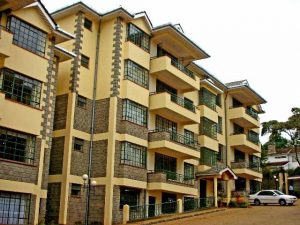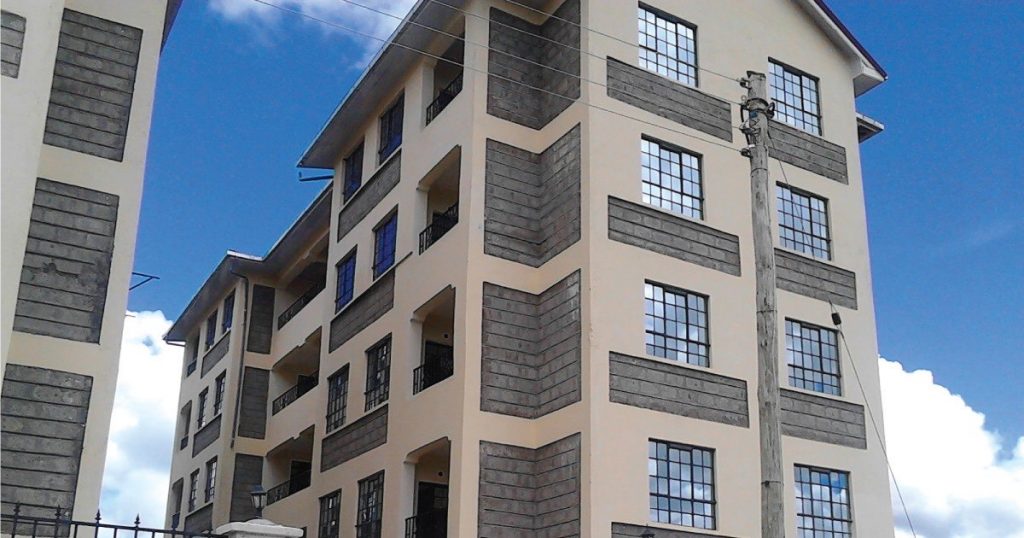As the ongoing Coronavirus (COVID-19) pandemic continues to affect various income streams across board, a large number of individuals who live in high end apartments are now looking for and moving to more affordable apartments or homes away from highbrow areas, sometimes even smaller too.

Moving companies are also corroborating this occurrence, stating that a substantial amount of Kenyans are no longer moving to expensive apartments.
According to Nellions Moving and Relocations company, the recent increase in home or apartment relocation as a result of the COVID-19 pandemic has either been to houses or apartments on the outskirts of the city intended for retirement or houses or apartments located at much more affordable areas.
In a conversation with Business Daily Life founder of Nellions Moving and Relocations; Cosmas Kamuyu said, “There has been an increase in people moving houses compared to last year. More people are moving from apartments to their own standalone homes even when some are still unfinished.”

A Housing Price Index by the Kenya Bankers Association in its first quarter report revealed that the more expensive housing is steadily losing tenants who are moving to their own homes and even smaller housing in order to reduce monthly expenses.
The Kenya Bankers Housing Price Index read, “There was a modest 33 percent rise in demand for bungalows even as demand for apartments and maisonettes contracted by 95.9 percent and 57.1 percent respectively. Taken together, these shifts in trends reflect buyer’s adjustment as affordability remains a crucial concern in the housing market.”
Workers in the housing and real estate sector have been hit with serious concerns at cuts, unpaid leaves sometimes, as well as outright job losses since the pandemic began. This is expected to have a lasting effect on the sector.
A survey by the Kenya National Bureau of Statistics (KNBS) revealed that seven (7) out of ten (10) Kenyans found it difficult to pay rent in May 2020.
An estimated 37 percent of said individuals were not able to pay the rent at all. 23 percent were able to part of the rent and 8.5 percent was optimistic that they would do so. These statistics reveal just how much the population’s income streams have been affected by the Coronavirus pandemic.
Realtors have also not been spared as they have had to carry out drastic measures. One of which, is having to reduce their prices by as much 50 percent, while also having to renegotiate leases during this period.

The Managing Director of real estate agency Knight Frank; Ben Woodhams, made it known that the real estate and hotel industries have been the hardest hit, as a result of the movement (stay at home) restrictions imposed by the Kenyan government. These restrictions, subsequently led to sharp decline in purchasing power.
According to Mr. Woodhams, “Generally, speaking tenants have been good about paying their rent, landlords have been good about understanding tenants’ situations, and landlords have also been having their situations. While the tenant is talking to his landlord because he suddenly cannot pay rent, the landlord is also talking to his financiers. Everybody is talking to everybody else and negotiating and generally, it has been working well.”
Speaking on the hotel industry Ben Woodhams stated that there has been a severe disruption as a result of shutting down of borders as well as the lack of movement from Nairobi and outside of Nairobi.
He added that shopping centers, now have 3 categories of clients. Clients who have not been affected by the pandemic, clients who have been affected and their purchasing or spending power reduced and clients like gyms, casinos and cinemas who have been made to close up shop by the government.

In Mr. Woodhams’ words, “What we have been doing, is talking to those in category one, we have been giving rent concessions to those in category two up to 50 percent and those in category three we have been dealing with them on a case to case basis.”
He added that the real estate agency; Knight Frank, has seen tenants in the office space sector affected much more than others. He however included that the office space sectors, has not been as hard hit rent wise as only a few office tenants are asking for or have asked for a rent compromise.
He said, “We see rental collections across our office portfolio generally better than the retail portfolio.”
The managing director is confident that things will begin to change for the better from August, when the restrictions are expected to be a bit more lenient, as local and international travel restrictions will be lifted.

He also said the industry is currently going through a restructuring of leases especially with regards to leases which are due for renewals. Tenants are looking to renegotiate for lower rent figures. These renegotiations are expected to lead to lower market prices for a long time to come.
In his own words, “That is happening, but I wouldn’t say so much with the anchor tenants, a lot of them are on turnover leases anyway. I would expect to see where a tenant has one or two more years to run, that tenant will say to their landlord can we talk, we renew our lease now, we change the rent slightly but we commit to a longer lease. So the landlord wins because his property has slightly more value with a longer lease and the tenant wins because his overheads are reduced, so this is how these negotiations are working.”
Are there any other topics, news or categories that you would like us to write on? Feel free to reach out to Mpesa Pay in the comment section.


